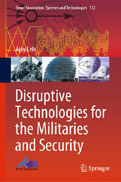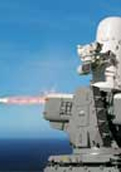Once Ready, ISRO’s SSLV Rockets Will Enhance India’s Strategic Capabilities
Senior Fellow, IDSA, Gp Capt Ajey Lele’s article on SSLV rockets, titled ‘Once Ready, ISRO’s SSLV Rockets Will Enhance India’s Strategic Capabilities’ was published in Strategic News International on February 08, 2019.
With SSLV, India would soon have a space architecture allowing for almost a launch-on-demand facility. Such capability is an important need for the armed forces. It offers them an assurance that during war their requirements, both for communication and space reconnaissance, could be met almost in real-time. Small satellites have substantial strategic utility too, including potential counter-space capabilities, reads the article.











